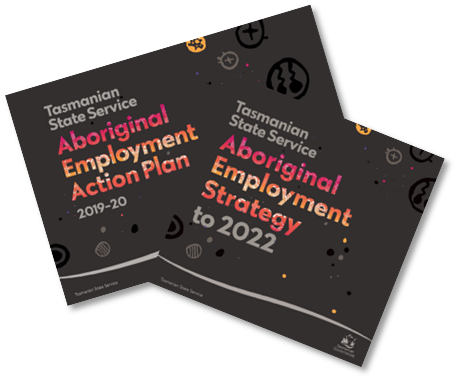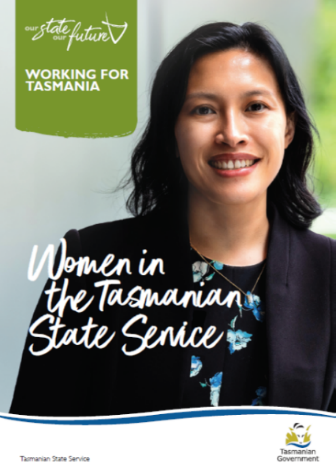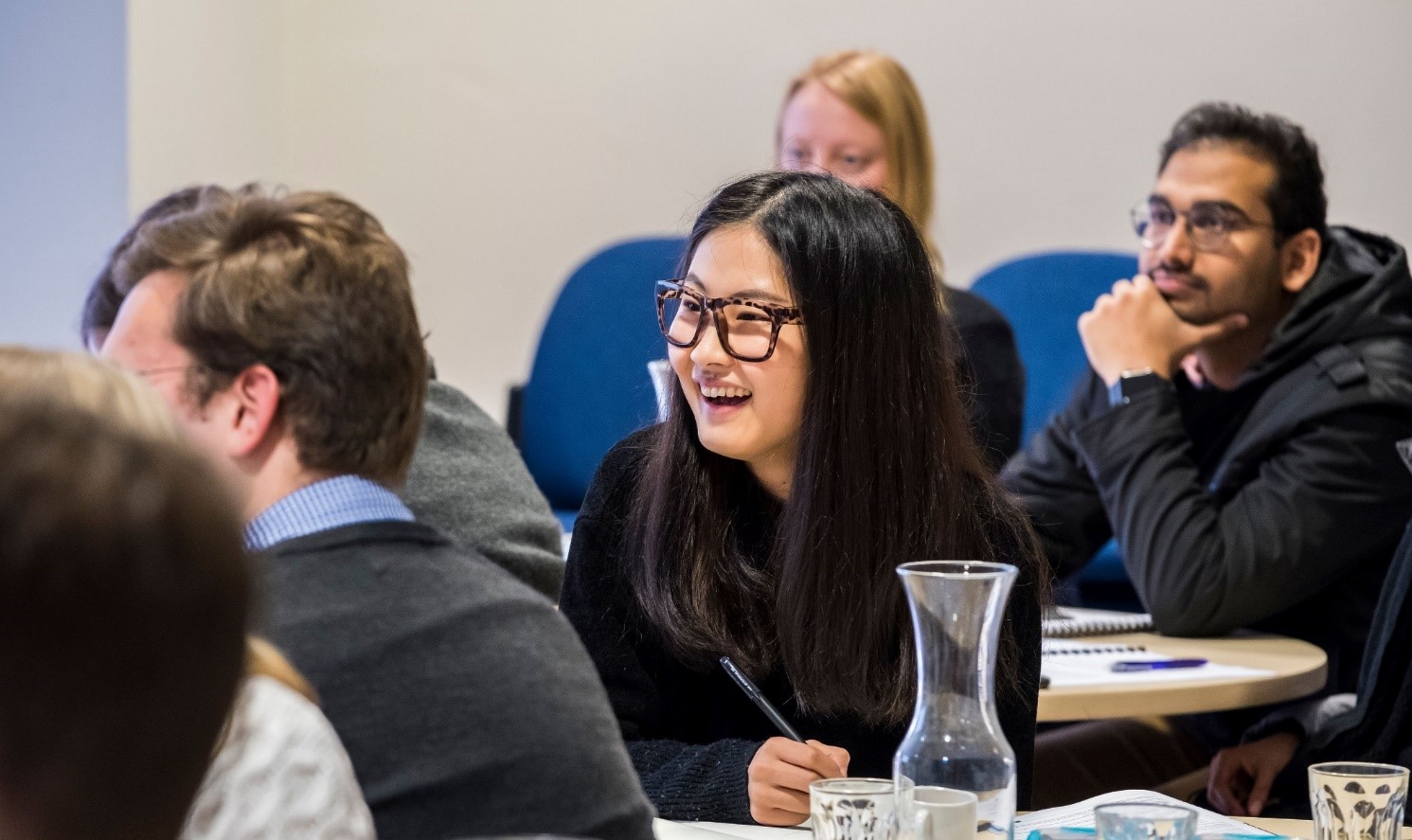
Divisions
- About the Tasmanian State Service
- Contact Us
- Aboriginal employment
- Culture of learning
- Diversity and inclusion
- Digital capability
- Employee surveys
- Employment arrangements
- Employment policy
- Managing performance
- Work health, safety and wellbeing
- Workforce planning and reporting
- Awards and Agreements
- Managing and leading change
- Senior Executives
- Managing Positions in the State Service (MPSS 2016)
- Legislation
- Coronavirus (COVID-19) Information for Staff
Contact Details
By phone
Find the number of a specific division or office to contact them directly or call Service Tasmania on 1300 135 513.
Our staff
Use the Tasmanian Government Directory to find staff contact details
Social media
Follow our social media accounts to keep up to date with specific programs and initiatives.
Embracing Diversity and Inclusion
Within the Tasmanian State Service (TSS) it is important to attract, celebrate and retain talented people from all sectors to achieve a diverse and inclusive workforce.
Aboriginal Employment Strategy
In June 2019, the Tasmanian State Service Aboriginal Employment Strategy (the Strategy) was released, setting out the ways we will increase the proportion of Aboriginal people working in the TSS from 3% to 3.5%. The Strategy’s implementation is supported by a 12 month Action Plan.
The State Service Management Office (SSMO) is progressing activities in three main initiatives:
- attracting more Aboriginal people to State Service jobs;
- developing and progressing the careers of existing Aboriginal employees; and
- supporting culturally respectful and inclusive workplaces.

Eight vacancies were filled using the Aboriginal and Torres Strait Islander Employment Register in 2018-19.
Aboriginal Employees’ Network Gathering
Supporting the TSS’s commitment to Aboriginal employees, the third Tasmanian State Service Aboriginal Employee’s Network Gathering was held at Karadi on 15 November 2018.
The 35 employees who attended the 2018 Gathering participated in discussions on employment opportunities and career pathways for Aboriginal people within the TSS. These discussions helped inform the development of the Strategy.
In the 2018 TSS Employee Survey 3% of respondents indicated that they identified as being an Aboriginal or Torres Strait Islander person.
Gender Diversity
In August 2016, the goal was set to achieve gender equity in our leadership with a target of at least 40% of the Senior Executive Service (SES) to be women by 2020. This target was achieved well ahead of that timeframe, and women now make up 43.33% [1] of the SES as at June 2019.
Heads of Departments committed to a new action plan for the period March 2019 to June 2020 that will continue the momentum toward the goal of 50/50 gender equity, by supporting cultural changes, and continuing to recognise opportunities and celebrate successes.
Support also continued for programs that provide opportunities for women in the TSS to develop their leadership skills. In 2018-19, women in leadership roles were given the opportunity to attend two training sessions: Confidence to Lead communication training and Being Bold: how women can improve their power and influence at work.
Women in the Tasmanian State Service
In March 2019, Women in the Tasmanian State Service was published celebrating and promoting the rich and diverse career opportunities available to women across the State Service through the stories of 16 current TSS employees at all levels and all career stages.
Women in the Tasmanian State Service aims to inspire and influence a variety of women, including their aspirations, career choices and attitudes about non-traditional careers.

In the 2018 TSS Employee Survey 68% of respondents were female, and 30% male.[2]
School to Work - Youth Employment Program
The 2018 pilot of the School to Work Youth Employment Program, offered in partnership with The Beacon Foundation, saw 14 students commence in paid traineeships in the TSS as part of their year 11 and 12 studies.
By the end of 2018-19, two of the 14 students had completed the Program and been offered employment in TSS agencies, while the remaining 12 continue to work and study towards nationally recognised qualifications that include:
- Certificate III in Business;
- Certificate II in Animal Studies;
- Certificate III in Education Support; and
- Certificate II in Conservation and Land Management.
The Program is aimed at increasing employment opportunities for young people in regional areas. Students in the current Program are participating in Huonville, Cressy, Deloraine, Burnie, Launceston, St Helens, Edith Creek, Port Arthur, Yolla and Queenstown.
A second round of traineeships will be offered next year.
Graduate Recruitment
The TSS continues to provide opportunities for recent university graduates to work with us and participate in the TSS Graduate Development program, TasGRAD, undertaking formal and on-the-job learning and development as well as rotations to gain experience working across the TSS.
Changes to the recruitment process this year represented a major change in the way the TSS approaches graduate recruitment. A multi-stage selection process was used that included an online verbal reasoning assessment and online video interviews. This process also provided an opportunity for agencies to experience contemporary online recruitment methods.
This year the process attracted 401 applications, which resulted in 36 graduates being appointed to vacancies across the Department of Education, Department of Health, Department of Communities Tasmania, Department of Premier and Cabinet, Department of Police, Fire and Emergency Management, Department of Justice, and the Tasmanian Audit Office.
Active Ageing in the State Service
In October 2018, the final report detailing the outcomes of the Active Ageing in the State Service Project was delivered. The Report showed that participants in the Project, who were aged 50 years and over, valued the opportunity to offer their views about their employment and the work they do, and that ‘being heard’ was an important factor in their ongoing engagement. The Project also showed that the older TSS workforce are passionate about the work they do, and value being able to use their knowledge and skills.
The Project also allowed these employees, who represented a broad range of occupational groups and classification levels, to highlight areas where they felt the TSS could improve when it came to supporting employees aged 50 years and over, including:
- providing additional support for workplace health and wellbeing;
- considering the impact of work tasks, functions and conditions (e.g. rostering) on older employees;
- supporting access to different types of flexible working arrangements; and
- providing better information to support decisions around financial matters, retirement and
post-retirement work options.
A Project Summary is available here.
In the 2018 TSS Employee Survey 66% of respondents indicated age was not a barrier in their agency. 73% of respondents agreed that their agency fostered an inclusive environment.
Agency Activities
Agencies continued to work to improve inclusion and diversity, remove barriers to employment, and increase employment opportunities within the TSS for all members of the community. They did this through support for whole-of-service initiatives such as flexible working arrangements, women in leadership, and working to achieve or maintain their White Ribbon Workplace accreditation. In addition, agencies reported their own activities which included:
ABORIGINAL AND TORRES STRAIT ISLANDER
- targeting recruitment into identified Aboriginal positions;
- working with the local Aboriginal community on employment initiatives;
- involvement in NAIDOC Week and Reconciliation Week activities;
- including an Acknowledgement of Country at all formal meetings;
- supporting cultural leave applications; and
- providing access to a dedicated Aboriginal support line through the Employee Assistance Program.
LGBTIQ
- providing LGBTIQ support networks, information sheets and intranet resources;
- establishing a dedicated LGBTIQ diversity and inclusion working group;
- delivering inclusive leadership workshops (LGBTIQ focussed) for all people leaders; and
- providing access to a dedicated LGBTIQ support line through the Employee Assistance Program.
YOUTH
- offering Vocational Education and Training and high school work placements, and supporting university and professional internship placements; and
- targeting youth recruitment, including cadetships, and traineeships and involvement in the School to Work Youth Employment Program.
DISABILITY
- identifying graduate roles for people with disabilities;
- supporting employees in the workplace with reasonable adjustments to workspaces;
- improving the accessibility of agency websites;
- participating in AccessAbility Day; and
- working with disability service providers to remove barriers to employment and to provide work experience opportunities.
GENERAL DIVERSITY AND INCLUSION ACTIVITIES
- increasing awareness of diversity and delivering unconscious bias training to managers, supervisors and recruiters through the Human Library workshops;
- providing cultural competence training for employees and cultural awareness elearning modules;
- reviewing recruitment strategies to identify contemporary ways to promote gender diversity;
- promoting and supporting participation in International Women’s Day, Harmony Day and other days/weeks of significance;
- creating respectful workplace practices and statements of appropriate behaviours to address unconscious bias; and
- establishing a range of diversity, equity and inclusion policies and strategies, committees and working groups.
In the 2018 TSS Employee Survey 5% of respondents said they were born in a non-English-speaking country and 8% said they were born in an overseas country where English was the primary language.
2019-20 Priorities
Priority | Actions |
|---|---|
Diversity and Inclusion Framework and Strategy |
|
TSS Aboriginal Employment Strategy |
|
Gender Diversity |
|
Youth Employment |
|
Active Ageing |
|
People with Disability |
|
Carers |
|
[1] Based on paid headcount.
[2] The remaining 3% of employees chose not to disclose their gender (% are rounded).
Back to: Contents | Previous to: Forward | Next to: Safety in the Workplace

